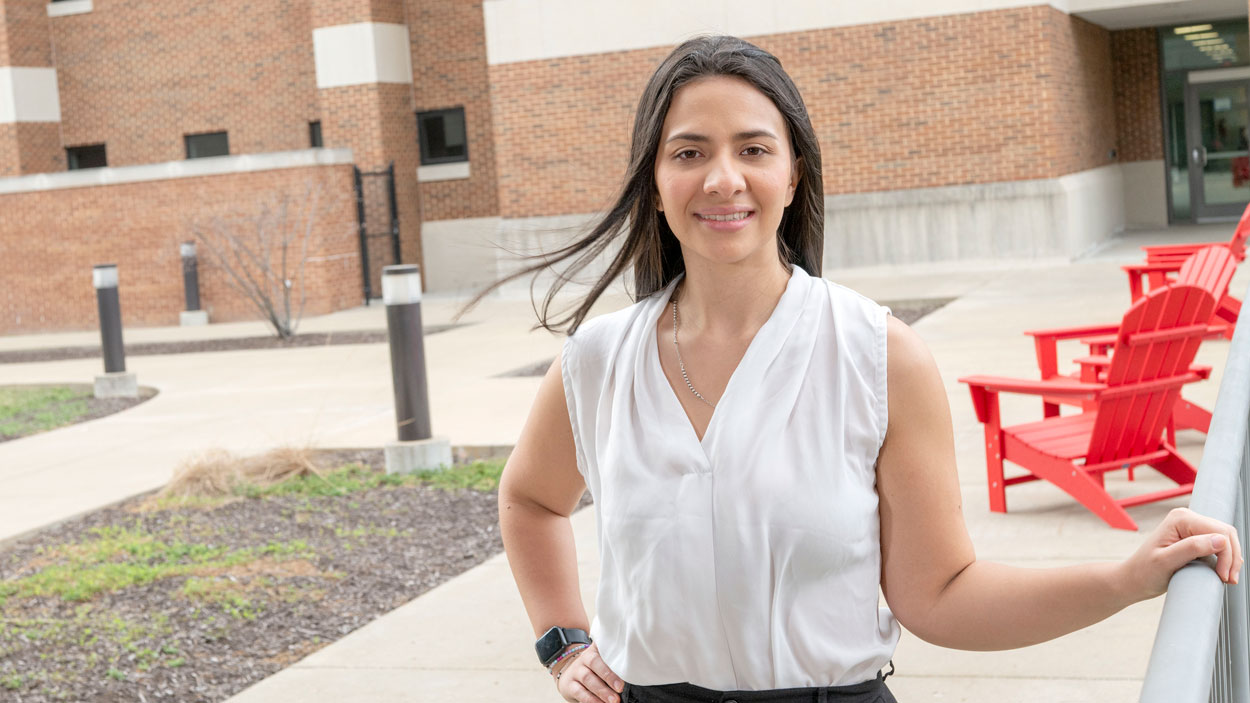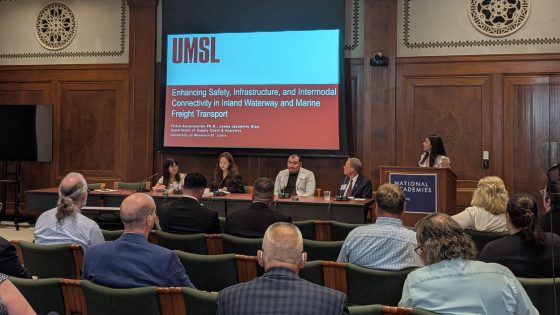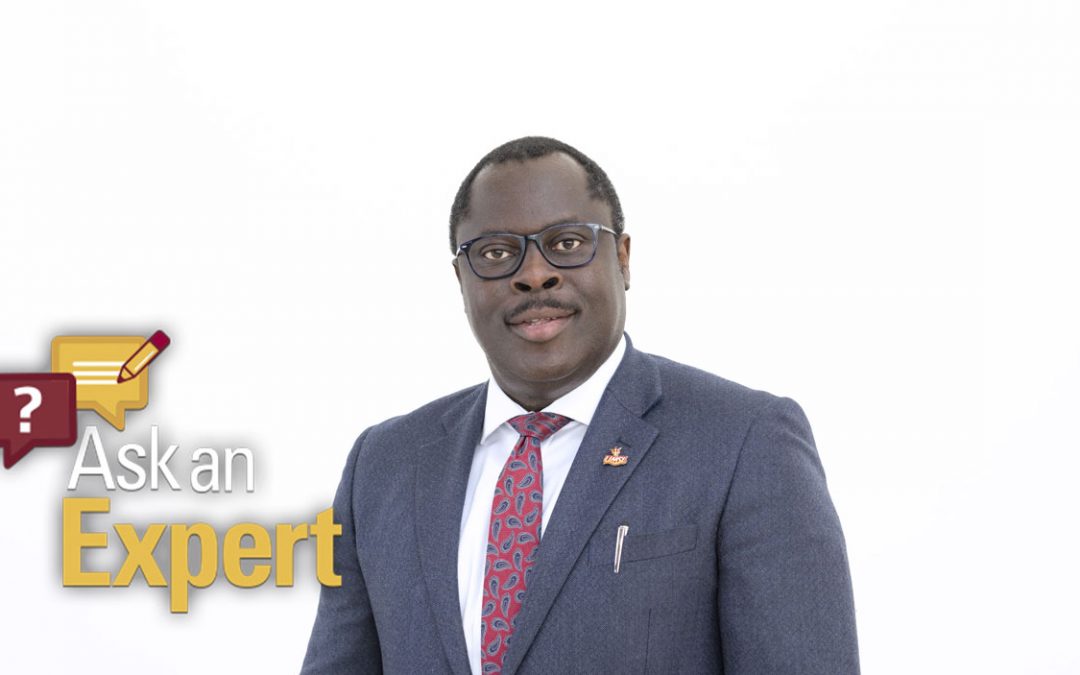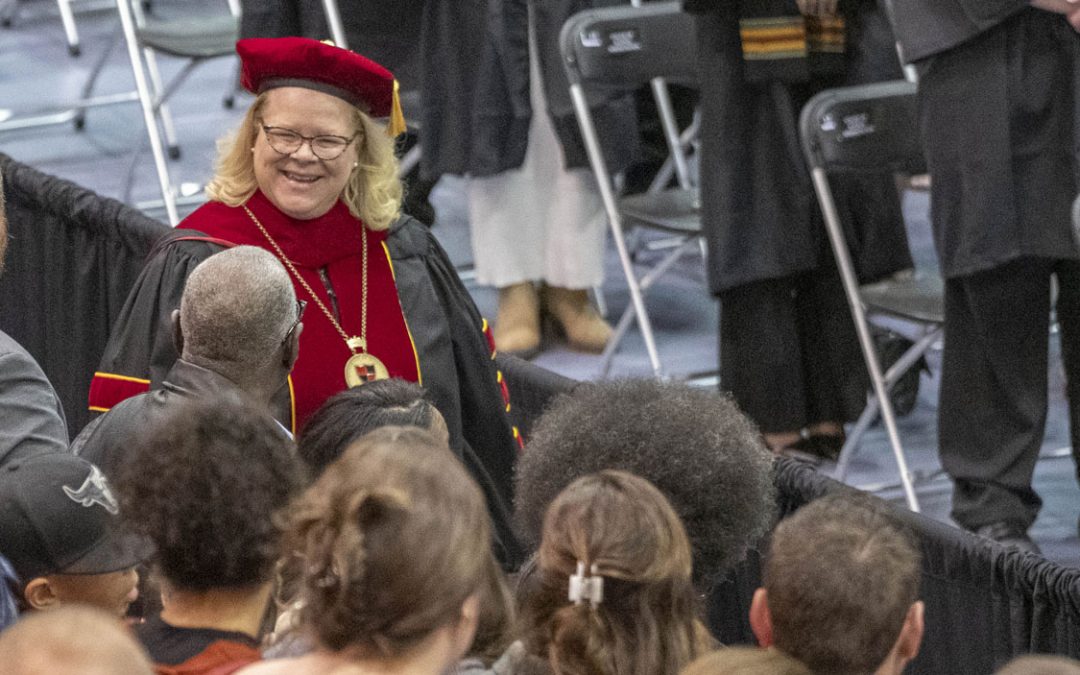
Supply Chain PhD student Juana Jaramillo-Rios had a busy summer representing UMSL; she presented the year one results of UMSL’s UTC grant in Washington D.C., then traveled to Belgium to attend the Urban Logistics Summer School at the University of Antwerp. (Photo by Derik Holtmann)
In Juana Jaramillo-Rios’ first full year as a PhD student at the University of Missouri–St. Louis, she’s already made a global impact while enhancing the stellar reputation of UMSL’s Department of Supply Chain and Analytics. Not only was she selected to participate in the prestigious Urban Logistics Summer School at the University of Antwerp in early July, but she also received a highly competitive scholarship to make the trip possible.
“The Urban Logistics program is internationally recognized and highly competitive,” said Trilce Encarnacion, an assistant professor and Jaramillo-Rios’ mentor in the supply chain program. “Spots are limited and filled with top students from around the world. Juana is the first student from UMSL to be selected for the program, which is exciting for both her and the university. It shows our students can compete on a global stage.”
Jaramillo-Rios traveled to Belgium after spending a few days in Washington, D.C., participating in the Student Honor Panel at the Transportation Research Board Conference on Marine Security. She presented the year one results from UMSL’s five-year, $5 million research grant from the University Transportation Center, which is funded by the U.S. Department of Transportation.
The experiences were unforgettable, as was the opportunity to represent UMSL.
“I really love to represent this university, because in my department – and all the university – we do a lot of hard work,” she said. “I see my classmates, my PhD colleagues, always come to the office and put in a lot of effort. This university brings to me a lot: the opportunity of being here and the opportunity to do what I love, and people here support me. They give me the opportunity to represent UMSL and our hard work in research and in the classes, too.”
Jaramillo-Rios came to UMSL from Colombia with a track record of hard work and success both in the classroom and in the research arena. She earned two degrees from the Universidad Nacional de Colombia: her bachelor’s in civil engineering, with an emphasis on transportation systems and infrastructure, and then she followed up with her master’s in engineering, with an emphasis in infrastructure and transportation systems.
While Jaramillo-Rios was doing her undergraduate degree, Paula Penagos was a teaching assistant for one of her classes, and the two developed a friendship based on mutual respect for each other’s research acumen. They kept in touch, and after Penagos chose to pursue her supply chain PhD at UMSL, she reached out to Jaramillo-Rios about joining her in St. Louis.
Encarnacion saw similar traits in both PhD students.
“Juana is bright, curious and always willing to try new things – which is so important in research,” Encarnacion said. “She also brings solid technical skills to the table and isn’t afraid to engage in new methodologies or topics.”
Jaramillo-Rios started at UMSL in the fall of 2024, shortly after UMSL started research with the UTC grant. She worked with Encarnacion to study how inland waterways could enhance multimodal transportation – Encarnacion said she played a key role in the data analysis phase and helped synthesize the findings – and that’s what she presented at the TRB event in Washington. Jaramillo-Rios was the only representative of UMSL at the prestigious conference.
“This one was so challenging because the people were experts on the research focus,” she said. “A lot of people came up to me and said, ‘I was thinking about doing that kind of research with the stakeholders,’ or ‘I am very interested in your methods,’ or ‘I am very interested in your results.’ Dr. Encarnacion is always saying to me, ‘Now you are famous! You’ll get a lot of contacts from that.’ I think it was amazing that the TRB brings the opportunity for students to present our work. Everybody was interested, asking questions.”
Encarnacion said it was clear Jaramillo-Rios did an excellent job with her presentation.

Juana Jaramillo-Rios (at dais) had the opportunity to present the year one results of UMSL’s UTC research grant at the Student Honor Panel at the Transportation Research Board Conference on Marine Security in Washington, D.C. (Photo courtesy of Juana Jaramillo-Rios)
“This engagement with the National Academies of Sciences through TRB reflects the high level of our research, and Juana’s participation was especially impactful,” Encarnacion said. “I had a call recently with industry representatives looking to leverage our research, and we have follow-ups from other industry and federal officials that would like a copy of the full report. This speaks to the relevance and quality of the work she helped present.”
At the Urban Logistics Summer School at the University of Antwerp, Jaramillo-Rios did more listening than talking. Participants took part in workshops, listened to lectures and had two excursions to explore the Flemish urban logistics scene.
“It was one of the best weeks of my life,” she said. “Antwerp is beautiful. Europe is beautiful. I met a lot of professors who were from a lot of different universities all over the world. And there were people from China, from Nigeria, from Brazil, from Colombia, from the U.S., from Canada and a lot from different parts of Europe. It was very good to mix all our cultures and know how urban logistics is important in all cities, and how the people are making research on that front.”
Jaramillo-Rios said she came back to UMSL with a lot of new research ideas.
“I think it’s very important for all the PhD students to go out and see the world and see that your work is very appreciated and very important,” she said. “I think that my love for research is because I’m always asking questions, like ‘How does this work?’ or ‘How we could improve this?’ I love that, because that is how research ideas are born. For example, with inland waterways, how do the stakeholders perceive our system? And then you choose a method, a qualitative or quantitative method, and work hard to get your answers.”














